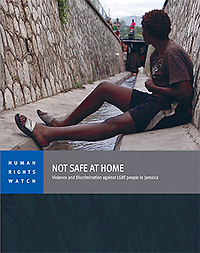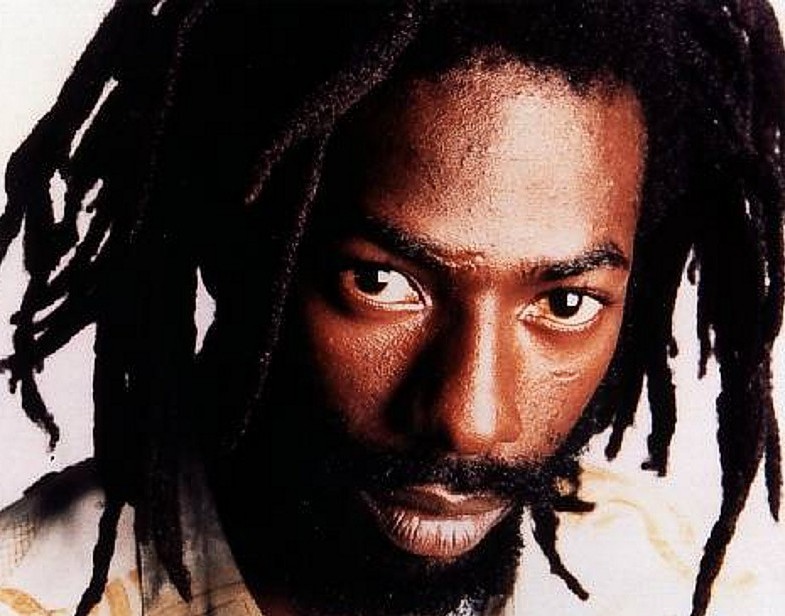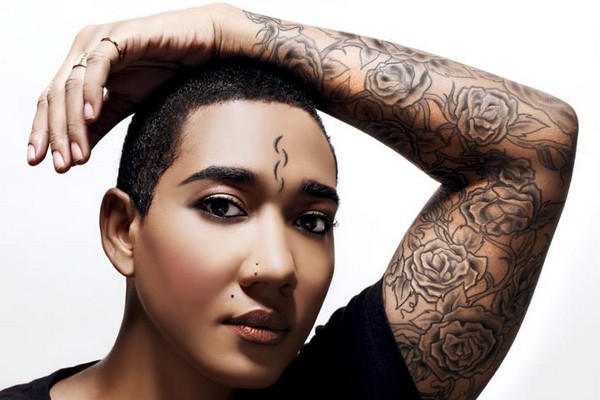Signs of progress in violent, homophobic Jamaica
Colin Stewart is a 45-year journalism veteran living in Southern…

A recent report by Human Rights Watch paints a familiarly grim picture of LGBT life in homophobic Jamaica, but speaks optimistically about signs of progress. HRW says:
“Violence against LGBT people in Jamaica today is rampant. Police, schools, and hospitals discriminate against LGBT people in Jamaica. But attitudes are shifting and a heated public debate about LGBT rights is taking place within the government, in churches, and in both blogs and the mainstream media.”
In an interview published by HRW, its researcher, Rhon Reynolds, talks about the report, “Not Safe at Home, Violence and Discrimination against LGBT People in Jamaica,” and what needs to be done to protect LGBT Jamaicans.
These are excerpts from that interview:
Is homosexuality outlawed in Jamaica?

No, but Jamaica does have British Colonial “buggery laws” on its books that outlaw men having anal sex with men. It also has “gross indecency” laws that outlaw physical intimacy between men, in public or private. There are no laws targeting lesbians, but they’re still discriminated against. Prime Minister Portia Simpson-Miller has talked openly about getting rid of the buggery laws, but she’s taken no significant, concrete action in this direction. Her words are a step in the right direction – especially considering that Jamaica’s previous prime minister, Bruce Golding, said on the BBC that no homosexuals would be allowed in his cabinet. But she needs to do more.
Why is Jamaica so homophobic?
Jamaica’s a heavily Christian society, and evangelical communities are organizing conferences and marches around any hint of overturning the buggery laws. When rumors swirled last summer that Miller would repeal the buggery laws, 25,000 anti-gay-rights demonstrators and religious leaders took to the streets in protest.

Although it plays less of a role today, since the 90’s major-label reggae artists have released songs promoting violence and hatred toward LGBT people – so called “murder music.” I remember being a teenager in Jamaica in the early 90s and listening to the song “Boom Bye Bye” by Buju Banton. It was a huge hit in Jamaica and internationally. But a friend of my parents stopped me, said the song was about killing a gay man, that I shouldn’t sing along. It was the first time I’d heard anyone say that.
Since that time, groups – including Jamaica’s diaspora – began mobilizing against this music, and as a result countries like Germany, the Netherlands, and Canada canceled tours and denied travel visas for certain artists. Some of the artists made public apologies. But times are changing. The popular reggae musician Diana King came out as a lesbian, and the artist Mista Majah P released an album supporting LGBT rights in Jamaica.

When it comes to context, it’s important to remember that Jamaica has a high murder rate, crime rate and poverty rate, so we can’t look at anti-LGBT violence in isolation. But what’s unique to hate crimes in Jamaica is that almost none of the cases documented in the report have led to a police investigation or an arrest. Because of the amount of rage fueling these crimes, the government should take the lead in developing and implementing hate crime legislation.
[Reynolds then recounts stories of:
- A young man who was threatened by a mob, lost his job and was evicted from family homes because he was gay; and
- A lesbian couple who were forced to seek asylum abroad, leaving their children behind, after being forced to move five times, raped, and shunned by police when they attempted to file a complaint.]
Based on these two stories, the police are part of the problem.
Yes. Although, to be fair, there has been improvement over the past decade. When Human Rights Watch released its first report on LGBT rights in Jamaica in 2004, the situation was even worse. Today, police are less likely to be perpetrators of violence and are a bit more likely to respond. I spoke with a gay policeman for the report – he lives in terror of the violence he’d face if others learned about his sexuality – and he knew of many cases where police refused to document, investigate, or make arrests around homophobic violence. The vast majority of LGBT people I spoke with said the police made fun of them and verbally abused them if they attempted to file a report. Many LGBT people still find trusting the police difficult, never mind asking them for help.
With homophobia so culturally entrenched, will changing laws be enough?
The government will need to do more. It should promote a dialogue around LGBT rights. Schools could have discussions around identity and sexuality. Hospitals and clinics should guarantee confidentiality. Now, gay people can’t openly talk to doctors and nurses without being afraid of being outed in their community – and of the violence that may follow. Not surprisingly, Jamaica has a high HIV rate. If people are trying to hide their identity, they won’t be able to access important HIV information.
The government needs to exhibit leadership here. In its past, Jamaica has combated colonialism and slavery. Its motto is “out of many, one people.” This sense of diversity and inclusivity is supposedly Jamaica’s ethos. If Jamaica really embraces these principles, leadership in the area of LGBT rights should follow.
For more information:
- Read the full interview, “Life for LGBT People in Jamaica.”
- Read the full report, “Not Safe at Home: Violence and Discrimination against LGBT People in Jamaica.”
Related articles
- Protesters call for repeal of Jamaica’s anti-gay law (76crimes.com)
- Jamaican PM reneges on promised review of sodomy law (76crimes.com)
- Jamaican politician: I would allow gays in cabinet (76crimes.com)
- How the land of ‘One Love’ became anti gay love (76crimes.com)
- Jamaican health official: Anti-gay laws must change (76crimes.com)
- For anti-gay Jamaicans, chickens coming home to roost (76crimes.com)
- Fear for family safety dissolves lawsuit vs. anti-gay law (76crimes.com)



LGBT rights is a satanic jewish agenda being forced on the world. I hope the people of Jamaica, Africa and other countries continue to resist being bullied into changing its traditional values and what the population of those countries see as moral. The West has not right to force its corrupt policies on other countries.